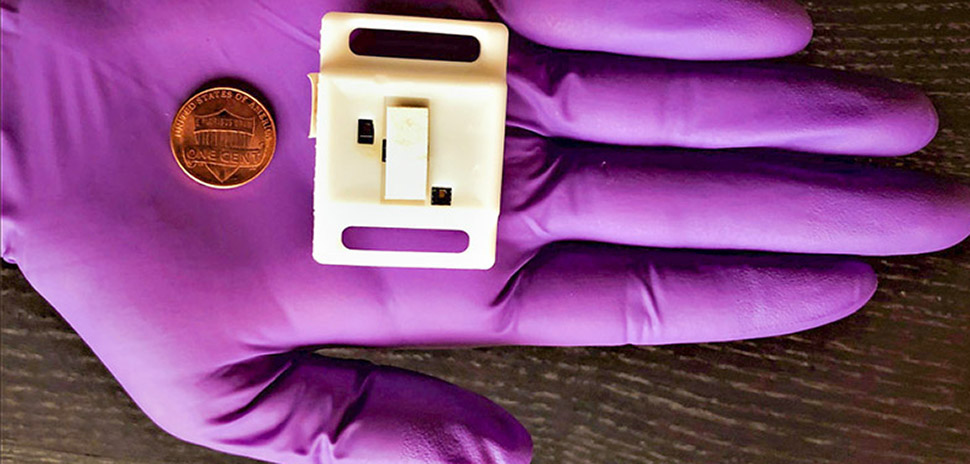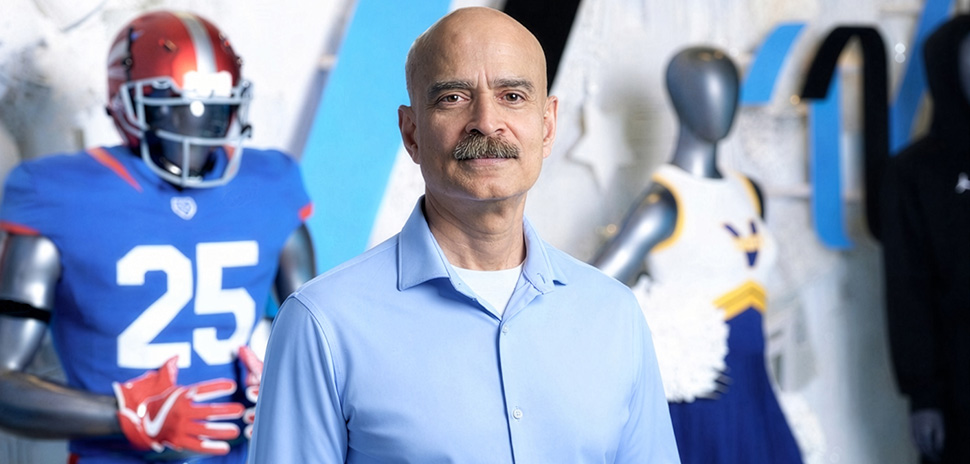Researchers from the University of Texas at Dallas have designed a new wearable device that can monitor sweat. The wristwatch-like tech looks for biomarkers that could potentially signal the flare-up of inflammatory bowel disease (IBD)—and UTD says its the first study to do so.
The device was demonstrated by a team of UT Dallas bioengineers in a proof-of-concept study funded by the Crohn’s & Colitis Foundation. The researchers monitored 20 healthy volunteers to demonstrate that the biomarkers could be tracked and to establish the levels in people without IBD.
It’s first-of-its-kind for two reasons, according to researchers: it establishes that a C-reactive protein (CRP) is present in human sweat, and it shows that CRP and another biomarker, interleukin-1β, can be detected in sweat.
Both interleukin-1β and CRP are biomarkers associated with inflammatory bowel disease.
The device has a sensor that detects and quantifies the presence of both key biomarkers. In doing so, according to Dr. Shalini Prasad, department head and professor of bioengineering in the Erik Jonsson School of Engineering and Computer Science, the tech could provide a warning of inflammatory bowel disease.
Not a diagnosis, though.
“It’s like the check-engine light in a car,” Prasad, the study’s principal investigator, said in a UTD release. “The warning signal doesn’t mean a patient is having a flare-up, but it could give the person the chance to intervene earlier, when the symptoms may be more responsive to treatment. The device also could help doctors understand sooner whether a treatment is working.”
Ultimately, the researchers aim to develop a device that could help patients better control IBD. They say it can be an unpredictable disease, one that affects millions in the U.S.
IBD is often characterized by chronic or recurrent immune response, in which cells lining the intestines are attacked when the body mistakes food and other materials for foreign substances, causing inflammation.
The current treatment for intestinal inflammation is through an endoscopy. But, experts say that procedure is too invasive to frequently monitor IBD. That creates challenges in recruiting patients for clinical drug trials.
“We’ve seen extraordinary revolutions in a number of fields, such as bioengineering, and dramatic events relating to medical devices, and we have not necessarily seen those ideas applied to IBD,” Dr. Gerard Honig, associate director of research innovation for the Crohn’s & Colitis Foundation, said in a statement. The Foundation partnered with Prasad’s team to develop the noninvasive monitor for IBD.
Prasad and her research team used ‘passive sweat,’ so no physical activity was needed to collect a sample from the sweat glands. According to Prasad, passive sweat is crucial because those with IBD may be unable to exercise at levels needed to generate active sweat.
It was done so through a removable strip incorporated into the wrist device, which is required to be changed daily.
A prototype of the device will be tested on patient volunteers in a second phase of the research, as further testing must be conducted before it’s available to patients. That phase will also be funded by the Crohn’s & Colitis Foundation.
According to researchers, future use of the device could include tracking other diseases and conditions that are marked by an inflammatory response.
Currently, Prasad’s team is investigating the device’s use on cytokines, which are proteins evident in the early stages of a viral infection like COVID-19.
“A wearable microsensor device would have the potential to empower patients to be actively engaged in monitoring their disease and managing it,” Honig said. “It would greatly facilitate clinical research and potentially could be used in the long term to facilitate proactive management, where you have a target biomarker level you’re trying to achieve over a certain period of time and you optimize care to get there.”
UT Dallas researchers, in addition to Prasad, included: lead author Badrinath Jagannath, a biomedical engineering doctoral student; Dr. Kai-Chun Lin, a bioengineering research scientist; Dr. Madhavi Pali, a bioengineering research associate; Devang Sankhala, an electrical engineering doctoral student; and Dr. Sriram Muthukumar, co-founder of EnLiSense.
![]()
Get on the list.
Dallas Innovates, every day.
Sign up to keep your eye on what’s new and next in Dallas-Fort Worth, every day.





























